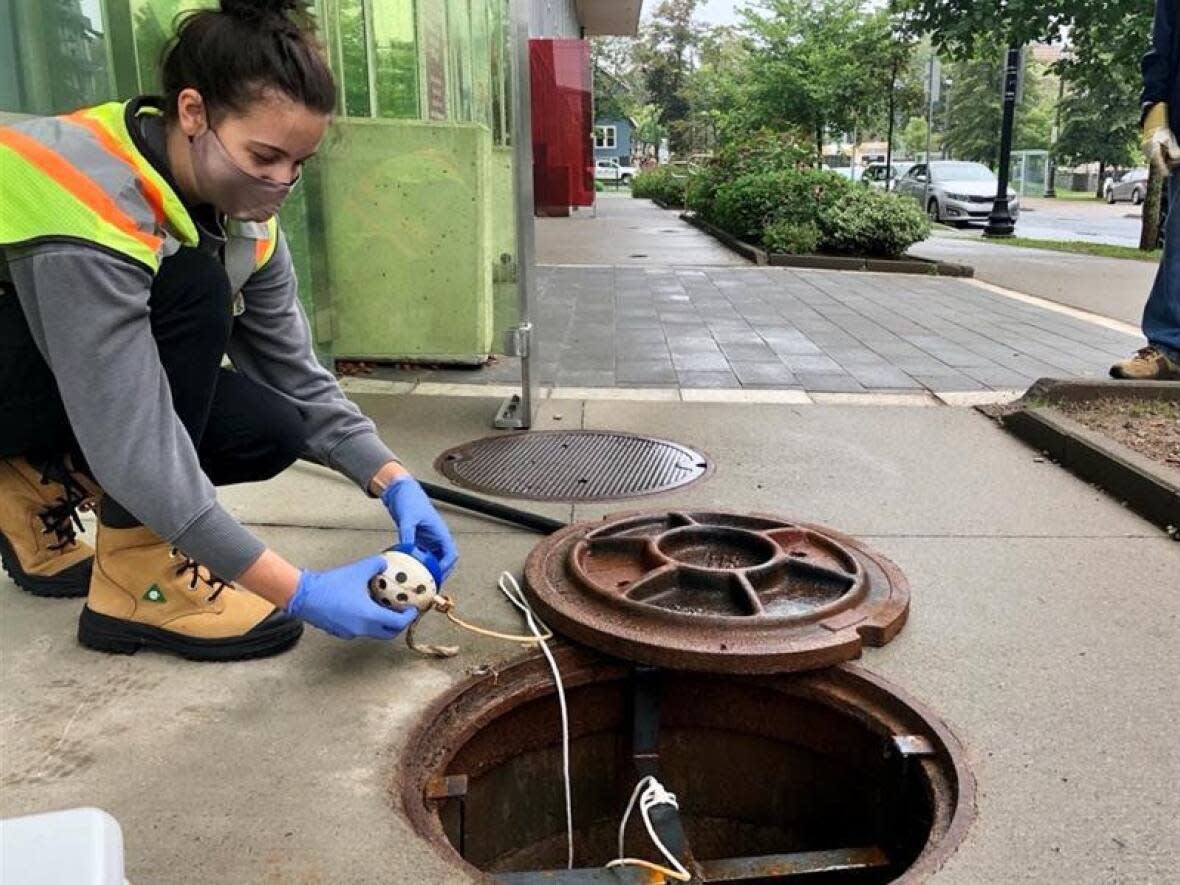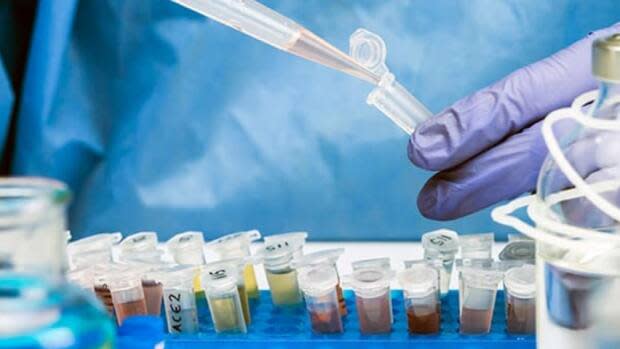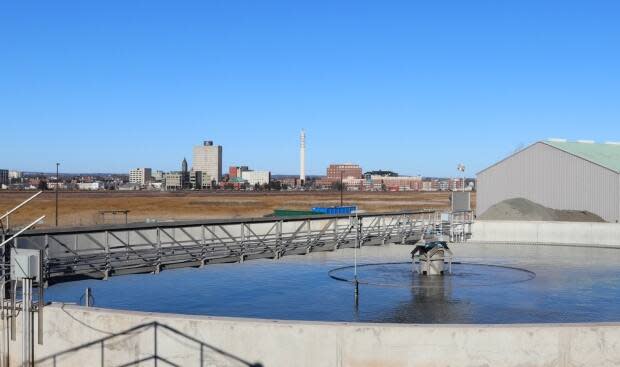New Brunswick COVID-19 wastewater monitoring announcement 'not quite there yet'

More than five months after the Department of Health confirmed it was looking into expanding COVID-19 wastewater monitoring in New Brunswick to help track transmission and trends, officials are still working on it with no new information to share.
But the acting chief medical officer of health says an announcement is coming soon and suggested the wording of the announcement itself might be what's holding things up.
"I know you're eager for news, and I know others are as well," said Dr. Yves Léger. "And we're certainly eager to provide you and New Brunswickers with more information on that.
"We're not quite there yet, but certainly there should be something coming in the not too distant future."
Right now, only the City of Moncton collects wastewater samples to monitor viral levels as part of a research project at Dalhousie University. The data is shared with Public Health.
Some provinces have been using wastewater monitoring to project COVID-19 trends since last year, when new data about new cases became less reliable because of restricted PCR testing.

COVID-19 is a respiratory illness with a wide range of symptoms. SARS-CoV-2, the virus that causes COVID-19, can also affect the gastrointestinal system and is shed in the feces of people infected with the virus in a form of genetic material called ribonucleic acid, or RNA, which can be found in the wastewater.
This shedding typically begins five to seven days before people develop symptoms, which is why results can be used as an early warning trigger.
In May, the Public Health Agency of Canada launched an online COVID-19 wastewater surveillance dashboard to illustrate trends in various jurisdictions, and help people make decisions about personal precautions, but New Brunswick is still not included.
Halifax, Dartmouth and Millcove; Charlottetown, Stratford and Summerside; and St. John's are represented, along with various areas in Quebec, Ontario, Manitoba, Saskatchewan, Alberta, B.C., and the Northwest Territories.
In June, New Brunswick's Chief Medical Officer of Health Dr. Jennifer Russell said wastewater monitoring was "in the pipeline," but declined to divulge any details, such as whether the testing would be provincewide or just in certain centres, or who would conduct the testing.
'Communications pieces' at issue
Asked about the delay, Léger said the department is working with a number of partners at the local, provincial and federal level.
"Because of the number of partners that we are working with … there's obviously a lot of co-ordination pieces that need to be worked through."
He declined to name the partners or reveal any information about them.
Asked if he could elaborate on the nature of the issues being worked through, such as whether they relate to logistics, or costs, he replied: "Just being able to make an announcement requires obviously that all the partners are sort of informed of the type of announcement that will be made and make sure that everyone's OK with the communications plan.
"And so there are some of those pieces that need to be worked through and get approvals from all the partners involved. So it's more around sort of the communications pieces."
Pressed to confirm whether he was saying decisions about where and how to expand have already been made, Léger did not answer directly.
He said the province's work on wastewater monitoring will continue beyond the announcement, which is expected "fairly shortly."
"Once we're able to, once we're closer to being able to provide, you know, an update, we'll do so," he added.

The City of Moncton has declined to release any of the its wastewater sampling results.
"Unlike other provinces or cities, the intention of our participation is merely to offer Dal University with a research project and area to add to their work," spokesperson Isabelle LeBlanc has said.
The data is, however, provided to Public Health.
Data for 2021, obtained by CBC News through access to information earlier this year, suggest some COVID-19 cases went undetected.
The data shows four apparent spikes of COVID-19 that year: on Feb. 8, March 18, April 29 and June 28, all times when there were "minimal cases or positive tests" reported and PCR testing was widely offered.
Department of Health emails from this past April about the results, also obtained through access to information, show officials tried to find an explanation for the apparent mismatch, such as increased occupancy at hotels around March break, and the role of temporary foreign workers who were quarantining in local hotels.
But they couldn't find an easy answer.
In April, the head of the wastewater surveillance project at Dalhousie University told CBC News his team had spoken to provincial officials a number of times.
Prof. Graham Gagnon, director of the Dalhousie University Centre for Water Resource Studies, said at that time he didn't think any more feasibility assessment was required to proceed with wastewater monitoring in New Brunswick.
"I think it's sort of well-established protocols for measuring SARS-CoV-2 in wastewater at this point," he had said.
Death toll reaches 490
Five more New Brunswickers died from COVID-19 between Sept. 25 to Oct. 1, raising the pandemic death toll to 490.
Nineteen people were newly admitted to hospital because of COVID-19 and there are 19 active hospitalizations, including one person who requires intensive care, as of Oct. 1, according to the province.
Meanwhile, Horizon and Vitalité, which include in their weekly reports people admitted to hospital because of COVID-19 as well as those initially admitted for another reason and later test positive for the virus, say there are 91 COVID-19 patients hospitalized, including six in intensive care, as of Oct. 1.
A total of 1,053 new cases of COVID-19 were reported, including 596 confirmed through a PCR (polymerase chain reaction) lab test and 457 people who self-reported testing positive on a rapid test.
There are 826 active cases of COVID across the province, as of Oct. 1, based on PCR cases alone.


